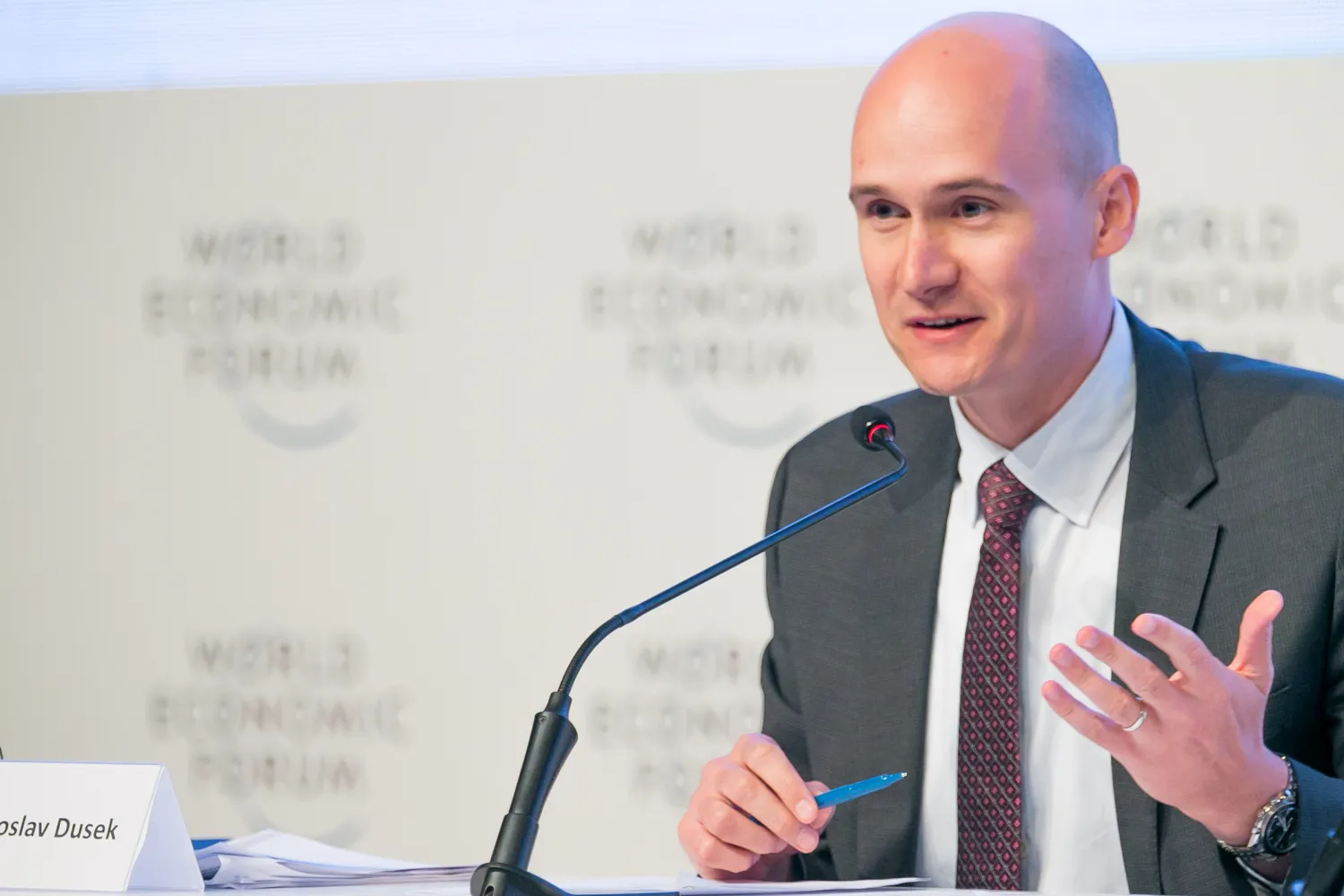“Davos Agenda” ended Friday, following calls from political and business leaders for increased international cooperation and innovative solutions to address common global challenges.
The five days’ panel discussions were held virtually, with the participation of 24 heads of state and government and over 1,700 business and civil society representatives, and focused on two main objectives, according to Mirek Dusek, the World Economic Forum’s head of Europe, Eurasia and the Middle East.
“One is mainstreaming and the other one is experimentation”, he told “Asharq Al-Awsat” in a phone interview.
He explained that pre-Covid, the WEF was already working on issues that included “the digital Revolution, known as the 4th Industrial Revolution, as well as the sustainability imperative, and gender and socio- economic inequalities, and how to close those gaps”.
“Leaders have been honest in saying that these issues have now become mainstream. And for post-Covid recovery efforts to be successful, both societal and economic, we need to really weave these issues into the fabric of business and recovery plans, and make them mainstream”, Dusek added.
He continued that “the mainstreaming message has come forward as a very strong one” in this year’s “Davos Agenda”.
Commenting on speeches given by world leaders, including German Chancellor Angela Merkel, French President Emmanuel Macron, King of Jordan Abdullah II, and Russian President Vladimir Putin, he said that although “their messages vary, there are certain commonalities”, that included highlighting issues like “the digital transition, the sustainability imperative, and the widening social and economic inequalities within and among nations”.
As for the second objective, Dusek explained that “experimentation relates to what we've been doing particularly with the fourth Industrial Revolution”, and looking at ways to improve cooperation between the public and the private spheres, in order“to really be able to face up to the humongous challenges of getting out of this crisis, and become more resilient”.
He added: “There is a realization that while regulation is very important, the interface between the public and the private sector needs to become more future-oriented and more agile”.
That said, Dusek noted that cooperation should not stop at coping with the 4th Industrial Revolution and technology governance, and should include innovative solutions to today’s challenges.
He said: “We launched, together with the government of the Netherlands, an initiative called Food Innovation Hubs. And it aims at finding innovative solutions around how to prevent hunger and food shortages, particularly in fragile economies”.
On the challenges facing the MENA region in particular, Dusek said that the pandemic was a wake-up call that “we are all in it together”, as the virus knows no borders.
He insisted on the imperative to find ways “to be more open and interconnected within the region”, welcoming the recent GCC reconciliation.
He added that these imperatives are “especially true for trade and investment, but also for health coordination, and taking advantage of the huge talent pool of young people in the region, as well as optimizing for maximum productivity and creating a bigger market”.
Sustainability is another imperative that Dusek highlighted, and that is in the heart of many projects championed by Saudi Arabia as part of its “Vision 2030”.
He said that in a previous Strategic Dialogue Session with the Saudi Crown Prince Mohammed bin Salman, held on January 13th, “we talked about Vision 2030, but also about the economic diversification plans and the huge ambition surrounding the mega projects”.
He added: “It is well known that (Saudi Arabia) takes sustainability, particularly with its new projects, very seriously”, noting that “this is hugely important. It goes back to being sustainable by design”. So, for these mega projects that are part of the “vision 2030”, said Dusek, “it is so important to design for sustainability”.
“A lot of industries are moving in that direction. So it is also important from that perspective. A lot of investors are adopting the ESG principles. So these initiatives are hugely important for the collaboration with the financial and Global business communities”, he added.













